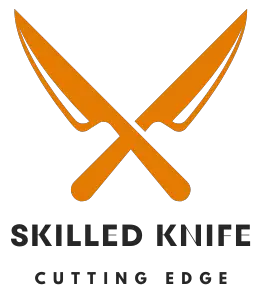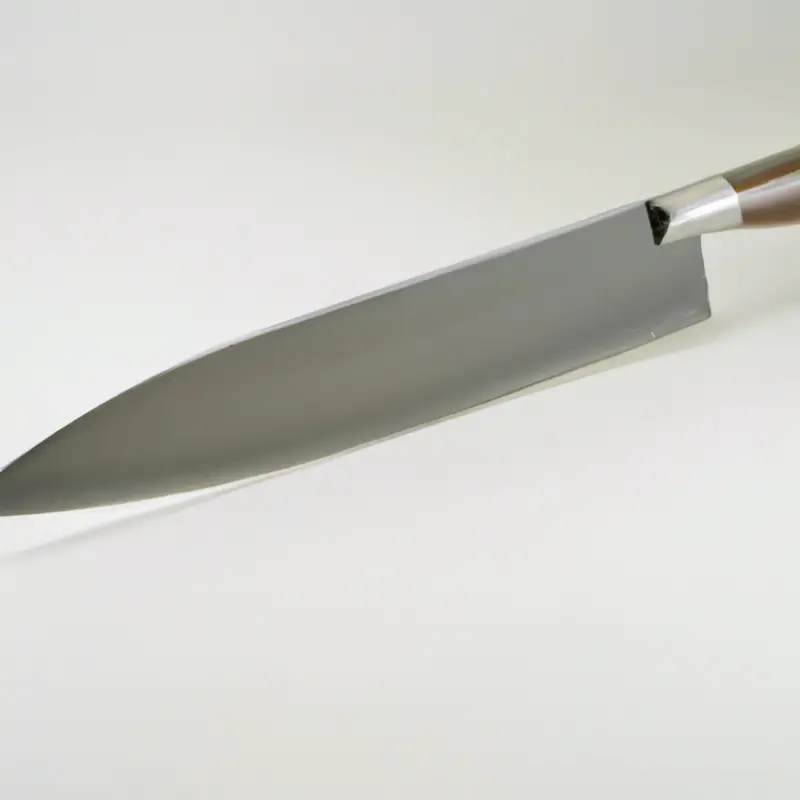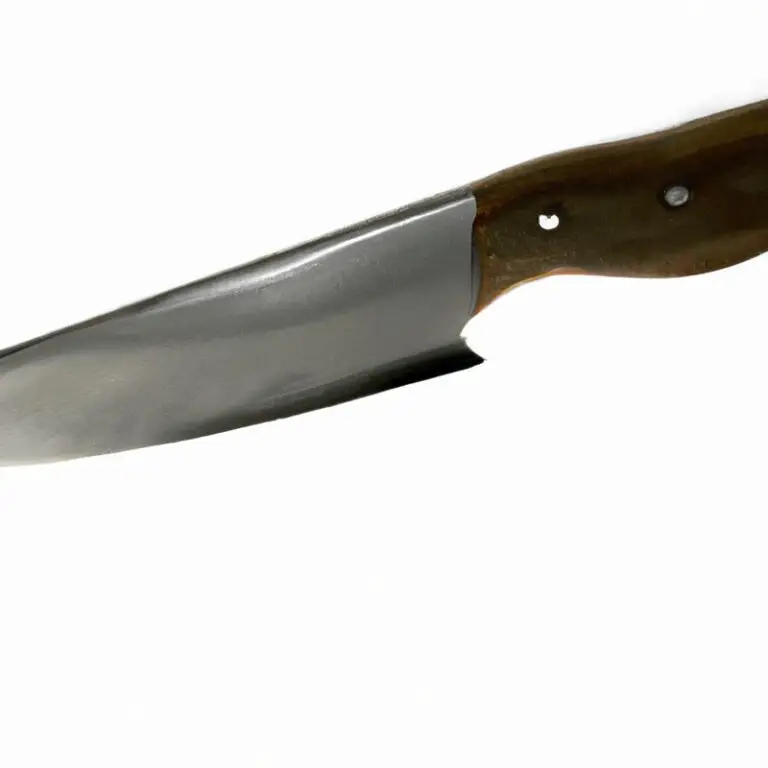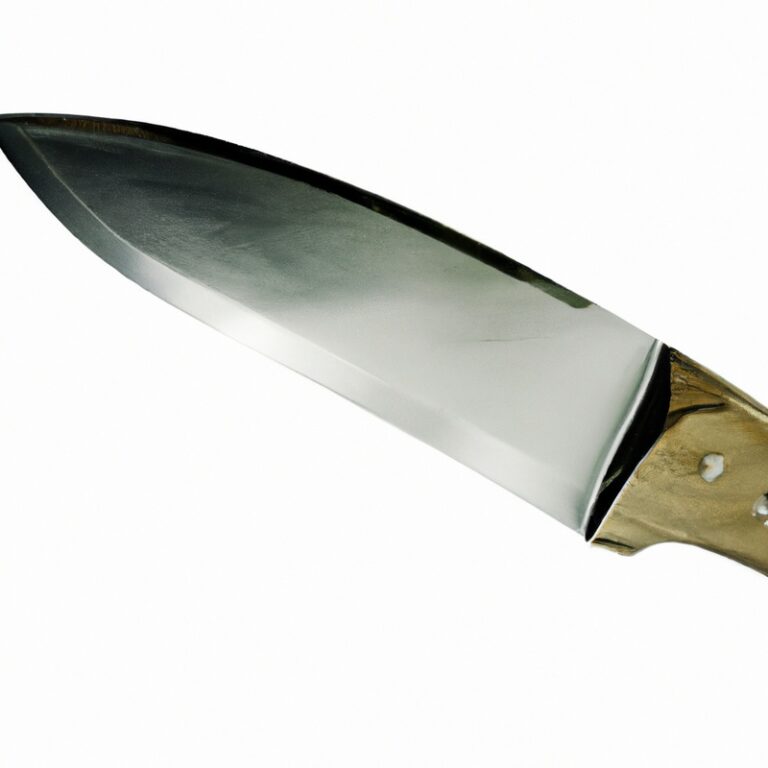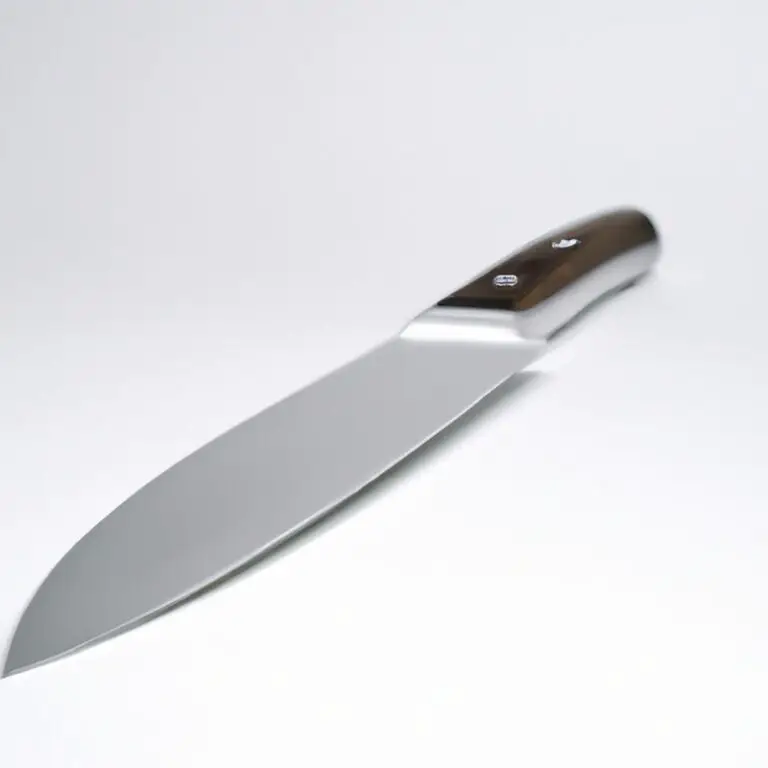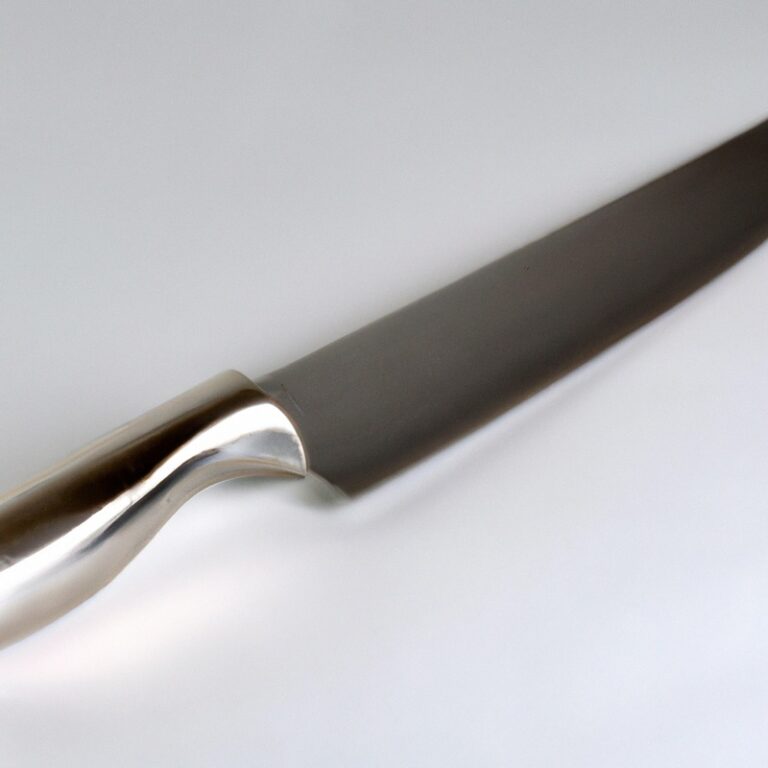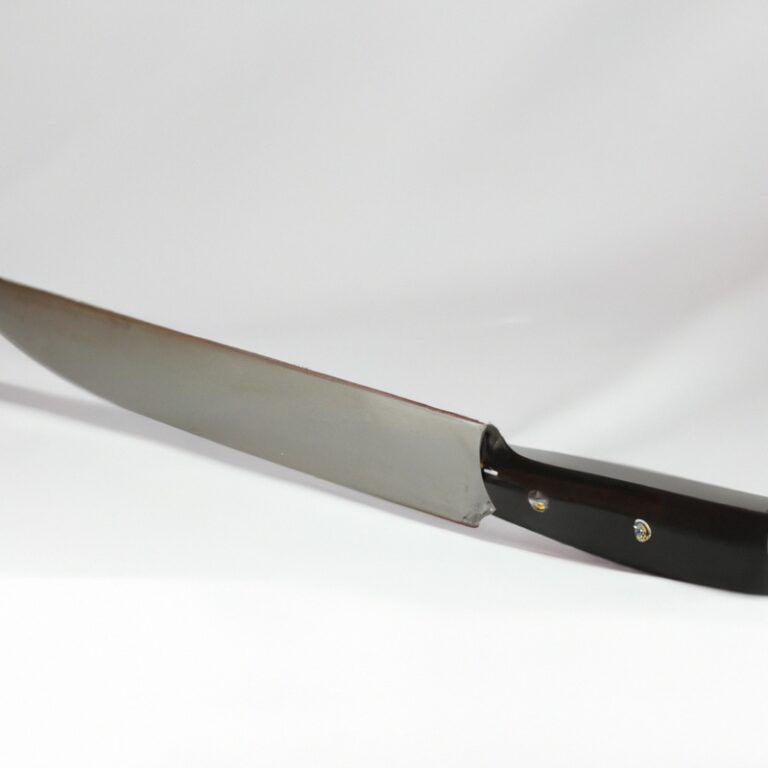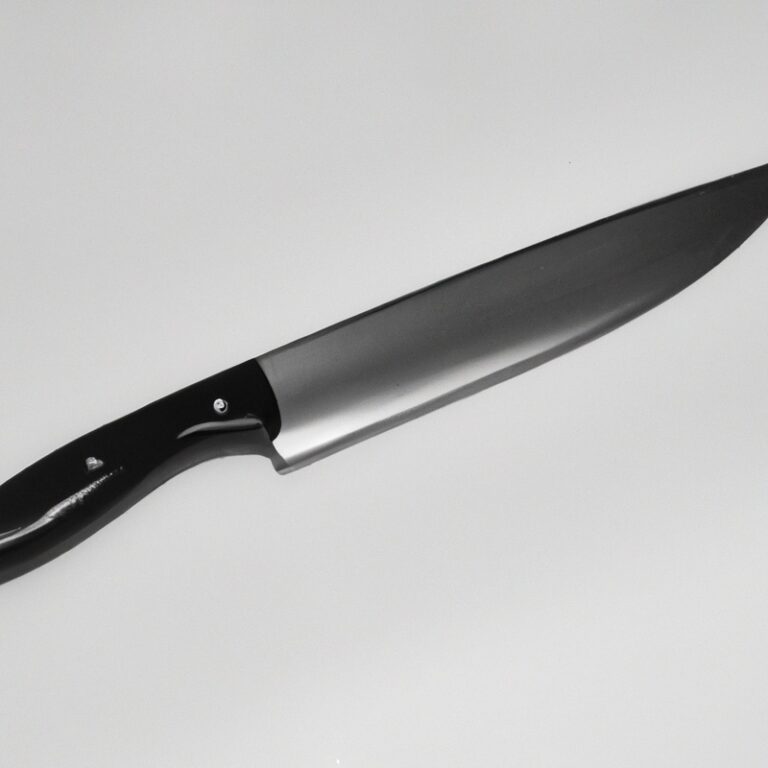What Is The Role Of Titanium In Knife Steel?
Key Takeaways:
- Titanium enhances the strength and durability of knife steel.
- Titanium helps to resist corrosion in knife blades.
- Titanium contributes to achieving a lightweight design in knife construction.
- Titanium enhances the overall performance of knife steel, making it a valuable addition to the manufacturing process.
Have you ever wondered why titanium is considered a game-changer in the world of knife steel? Well, I’m here to shed some light on this extraordinary material and its role in creating high-quality knives.
From enhanced strength and durability to corrosion resistance and lightweight properties, titanium brings a multitude of advantages to the table.
But that’s just the beginning! In this article, we’ll explore how titanium affects knife performance, the different types of titanium alloys used in knife making, the manufacturing process of titanium knife steel, and even tips on maintenance and care. Get ready to dive into the fascinating world of titanium in knife steel and uncover its secrets!
| Role of Titanium in Knife Steel | Description |
|---|---|
| Strengthening | Titanium is added to knife steel to improve its strength and hardness. |
| Corrosion Resistance | Titanium helps to enhance the knife’s resistance to corrosion by forming a protective oxide layer. |
| Grain Refinement | Titanium can act as a grain refiner, resulting in a finer and more uniform grain structure in the steel. |
| Giving Knife a Silvery Appearance | Titanium can give knife steel a silvery appearance, which is desirable for aesthetic purposes. |
| Lightweight Properties | When titanium is used in knife steel, it can contribute to lightweight knife designs. |
Advantages of Adding Titanium to Knife Steel
Enhanced strength and durability
Enhanced strength and durability are two key benefits of adding titanium to knife steel.
Titanium is known for its exceptional strength-to-weight ratio, making it an excellent choice for reinforcing the durability of knife blades.
By incorporating titanium into the steel, it helps to prevent chipping, cracking, and breaking, ensuring a longer lifespan for the knife.
Additionally, titanium improves the overall strength of the steel, allowing for better performance in demanding tasks.
With titanium-enhanced knife steel, you can rely on your knife to withstand heavy use without compromising its strength or durability.
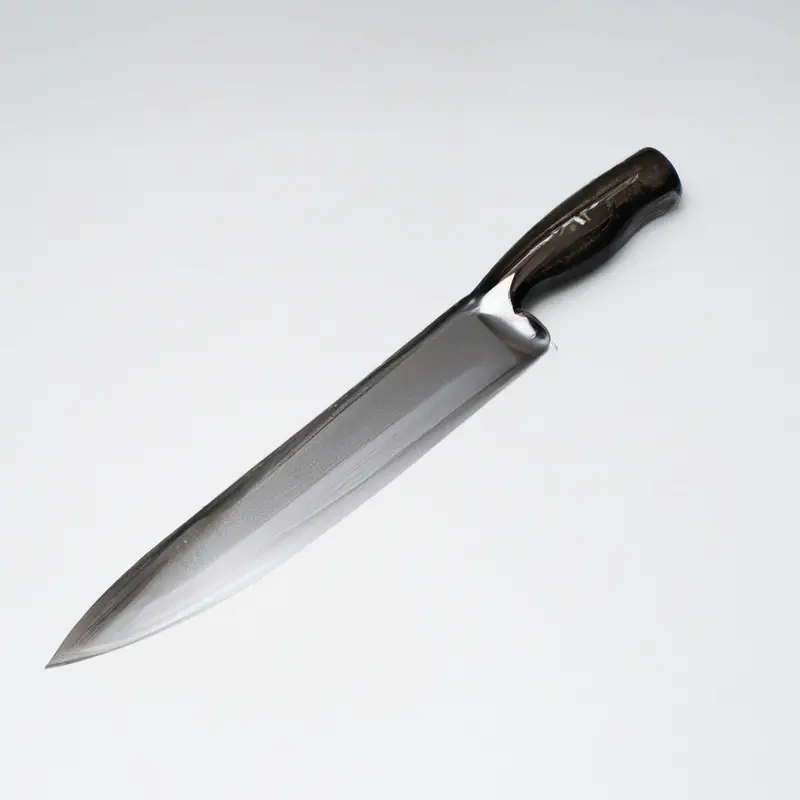
Corrosion resistance
Titanium is highly valued in knife steel due to its exceptional corrosion resistance. Unlike other metals, titanium is highly resistant to rust and oxidation, making it ideal for use in environments with high moisture or exposure to acids and salts.
This corrosion resistance ensures that your knife stays in optimal condition for extended periods, requiring less maintenance and reducing the risk of damage or deterioration.
With titanium in the steel, you can trust that your knife will withstand the test of time, even in harsh conditions.
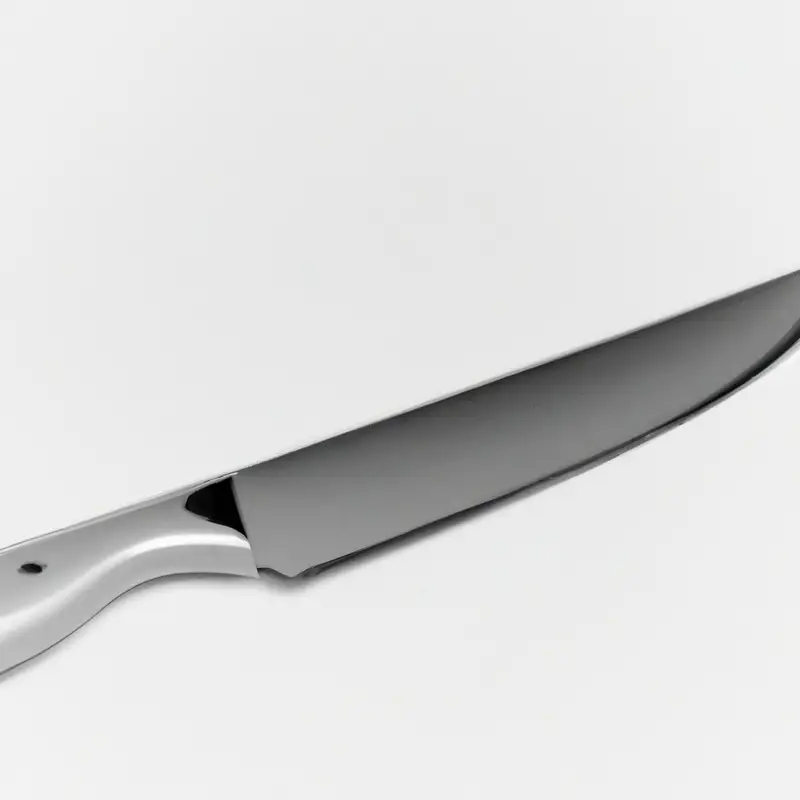
Lightweight properties
Titanium is renowned for its lightweight properties, making it an excellent choice for knife steel. With a density of only 4.5 grams per cubic centimeter, titanium knives are incredibly light and comfortable to handle.
This lightweight characteristic has several advantages, including increased ease of use and reduced fatigue during prolonged use.
It also makes titanium knives an ideal option for outdoor activities and backpacking, where every ounce matters. Additionally, the lightweight nature of titanium allows for better maneuverability and precision in cutting tasks, enhancing overall user experience.
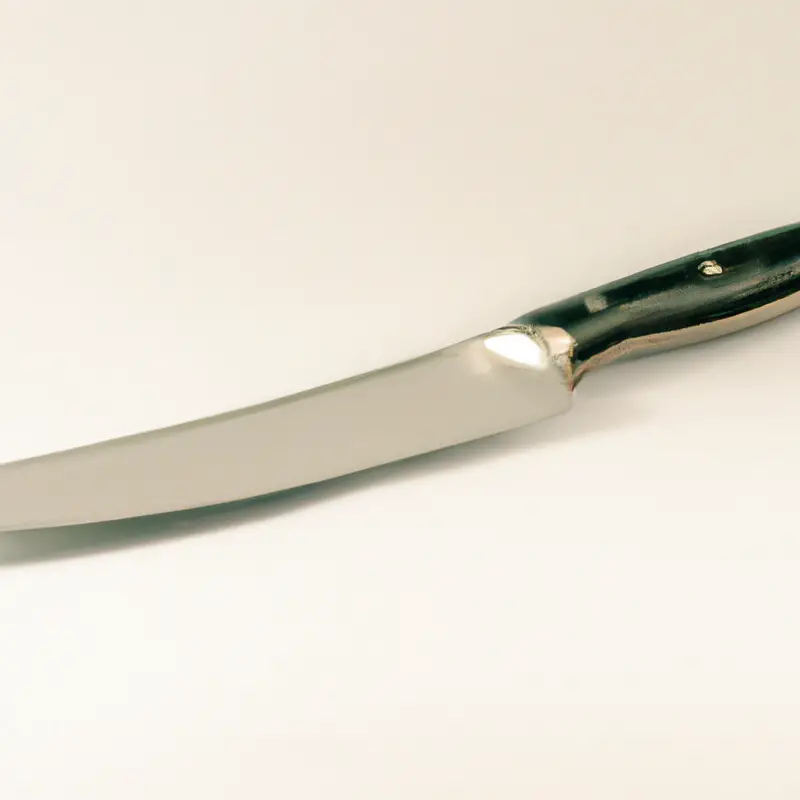
Retention of edge sharpness
The addition of titanium to knife steel plays a significant role in the retention of edge sharpness.
Titanium alloys enhance the hardness and toughness of the steel, allowing the blade to maintain its sharpness over time.
This means that you won’t have to constantly sharpen your knife to keep it performing at its best.
The titanium also improves the blade’s resistance to wear and tear, ensuring that it stays sharp for longer periods without losing its cutting efficiency.
So, with the incorporation of titanium, your knife’s edge sharpness will be better preserved, making it a reliable tool for various cutting tasks.
How Titanium Affects Knife Performance
Improved hardness and toughness
When titanium is added to knife steel, it improves both hardness and toughness. Hardness refers to the knife’s ability to resist deformation, while toughness refers to its ability to withstand impacts or shocks without breaking or chipping.
Titanium enhances these properties, making the knife steel more durable and less prone to damage.
This means that the knife will be able to maintain its sharpness and withstand heavy use over time. The addition of titanium to the steel composition plays a crucial role in enhancing the overall performance and longevity of the knife.
Enhanced corrosion resistance
Titanium is widely used in knife steel due to its enhanced corrosion resistance.
It forms a protective oxide layer on the surface, preventing rust and corrosion.
This makes titanium knives ideal for use in humid and marine environments.
Additionally, the corrosion resistance of titanium allows for easy maintenance and cleaning.
You won’t have to constantly worry about your knife rusting or deteriorating over time.
Plus, the added durability ensures that your titanium knife will last for years to come.
Impact on blade sharpness and edge retention
When it comes to the impact of titanium on blade sharpness and edge retention, there are a few important factors to consider. Titanium alloys are known for their ability to hold a sharp edge for a longer period of time compared to other materials.
This means that knives made with titanium steel can maintain their sharpness even with extensive use over time.
Additionally, the hardness of titanium contributes to its edge retention capabilities. Titanium alloys have a high hardness level, which makes them less prone to wear and deformation.
This allows the knife to maintain its sharpness even after repeated use.
Furthermore, the low coefficient of friction of titanium helps in reducing the drag and resistance when cutting. This means that the blade can slice through materials more smoothly, resulting in clean and precise cuts.
Overall, the presence of titanium in knife steel positively impacts blade sharpness and edge retention, allowing for long-lasting sharpness and high performance in cutting tasks.
Influence on overall knife performance
The addition of titanium to knife steel greatly influences the overall performance of the knife.
Titanium enhances the hardness and toughness of the blade, making it more durable and resistant to wear and tear.
It also improves the knife’s corrosion resistance, ensuring that it maintains its quality even in harsh conditions.
Furthermore, the lightweight properties of titanium make the knife easier to handle and carry.
Lastly, titanium helps retain the sharpness of the blade, resulting in a longer-lasting cutting edge.
With these enhancements, the overall performance of a titanium knife is significantly improved.
Different Types of Titanium Alloys for Knife Steel
Popular titanium alloy choices for knife making
Popular titanium alloy choices for knife making include:
- Grade 5 Titanium (Ti-6Al-4V: This alloy is widely used in knife making due to its excellent balance of strength, durability, and corrosion resistance.
- Grade 23 Titanium (Ti-6Al-4V ELI: Often chosen for its biocompatibility, this alloy is ideal for knives used in medical and food processing applications.
- Grade 9 Titanium (Ti-3Al-2.5V: Known for its high strength-to-weight ratio, this alloy offers enhanced toughness and is commonly used in tactical and outdoor knives.
Each of these titanium alloys has its unique characteristics, and the choice depends on the specific requirements of the knife.
Manufacturers may also combine titanium with other materials to further enhance its properties.
Characteristics of each titanium alloy
Each titanium alloy used in knife steel has its own unique characteristics.
- Al-4V (Grade 5: This alloy is strong, lightweight, and corrosion-resistant. It offers excellent strength and hardness, making it ideal for high-performance knife blades.
- CP Ti (Commercially Pure Titanium: CP Ti is known for its exceptional corrosion resistance and biocompatibility. It is not as strong as other titanium alloys, but it is often used for knife handles due to its lightweight and corrosion-resistant properties.
- Beta Titanium: Beta titanium alloys combine strength, hardness, and elasticity. They are highly resistant to corrosion and can be a good choice for knife blades that require durability and flexibility.
- Ti 10V-2Fe-3Al: This alloy offers a good balance of strength, hardness, and corrosion resistance. It is commonly used in knife making because of its excellent mechanical properties and toughness.
Remember, each titanium alloy has its own advantages and drawbacks, so it is important to choose the right alloy based on the specific requirements of your knife.
Comparison of different titanium alloys in knife steel
There are several different titanium alloys that are commonly used in knife steel. These alloys include Grade 2, Grade 5 (Ti-6Al-4V), and Grade 9 (Ti-3Al-2.5V).
- Grade 2 titanium offers good corrosion resistance and is often used in applications where strength is not the primary concern.
- Grade 5 titanium is a popular choice for knife making due to its high strength and excellent corrosion resistance. It also has good toughness and can retain its edge sharpness well.
- Grade 9 titanium is similar to Grade 5, but with slightly less strength and better affordability.
The choice of titanium alloy for knife steel depends on factors such as desired strength, corrosion resistance, and budget. Each alloy has its own unique characteristics, and it’s important to choose the one that best meets your specific needs as a knife maker.
Manufacturing Process of Titanium Knife Steel
Titanium extraction and production
Titanium extraction and production involve several steps. Firstly, titanium ore is mined and refined to obtain titanium dioxide (TiO2).
This compound is then processed to remove impurities and produce pure titanium sponge.
The sponge is melted and further processed into various forms, like ingots or billets. These titanium products are then used as raw materials for knife steel production.
The manufacturing process may include alloying titanium with other metals, heat treatment, and tempering to enhance its properties.
The result is a durable and corrosion-resistant titanium knife steel ready for fabrication.
Alloying titanium with other metals for knife steel
Alloying titanium with other metals is a common practice in knife steel manufacturing.
This process involves blending titanium with other elements to enhance the performance of the steel.
The addition of metals like vanadium, cobalt, or molybdenum can improve hardness, toughness, and edge retention.
Copper and nickel can also be added to enhance corrosion resistance.
By combining titanium with these alloys, knife makers can create blades that are strong, durable, and resistant to rust and wear.
This alloying process is crucial in creating high-quality knife steel with superior performance characteristics.
Heat treatment and tempering process
The heat treatment and tempering process plays a crucial role in the production of titanium knife steel.
First, the steel is heated to a specific temperature to improve its hardness and strength.
Then, it is rapidly cooled to lock in these properties.
After that, tempering is done to reduce the brittleness and enhance toughness.
This involves reheating the steel to a lower temperature and holding it there for a specific time.
The result is a knife blade with optimal hardness, strength, and toughness.
These processes are essential for achieving the desired performance and durability in titanium knife steel.
Maintenance and Care for Titanium Knife Steel
Cleaning and preventing tarnish
Cleaning and preventing tarnish on a titanium knife steel is important to maintain its appearance and performance.
Here are a few tips to help you with this task:
- Regular cleaning: After each use, clean your titanium knife with warm soapy water and a soft cloth or sponge. Avoid using abrasive materials or harsh chemicals that can damage the surface.
- Drying thoroughly: After cleaning, ensure that your knife is completely dry before storing it. Moisture can cause tarnish and corrosion on the titanium surface.
- Preventive measures: Consider applying a thin layer of mineral oil or a specialized knife oil on the blade and handle to create a protective barrier against moisture and tarnish. This will help maintain the shine and prevent oxidation.
- Storage: Store your titanium knife in a dry and well-ventilated area. Avoid storing it in humid environments or with other metal objects that can cause tarnish through contact.
Sharpening and honing techniques
When it comes to sharpening and honing titanium knife steel, there are a few techniques you can try.
- Sharpening: Use a sharpening stone or diamond abrasive to gradually remove small amounts of metal until the blade is sharp. Start with a coarse grit and work your way up to a finer grit for a polished edge.
- Honing: After sharpening, use a honing rod or leather strop to realign the blade’s edge and maintain its sharpness. Gently swipe the edge along the rod or strop at a consistent angle.
- Angle control: Maintain a consistent angle while sharpening and honing to ensure an even edge. This will optimize the performance and longevity of your titanium knife.
Protective coatings for titanium knife blades
Protective coatings play a significant role in maintaining the performance and appearance of titanium knife blades. These coatings act as a barrier against scratches, corrosion, and wear.
One popular option is titanium nitride (TiN), which provides a hard and durable coating that enhances the blade’s resistance to wear and tear.
Another option is DLC (diamond-like carbon) coating, which offers excellent scratch resistance and low friction properties. Both coatings not only protect the blade but also add a stylish aesthetic.
Regular inspection and reapplication of the coating are recommended to ensure long-lasting protection.
Comparing Titanium to Other Knife Steel Materials
Titanium vs stainless steel in knife making
When comparing titanium and stainless steel in knife making, there are some key differences to consider.
Titanium is known for its lightweight properties, making it a popular choice for those who prefer a lighter knife.
Stainless steel, on the other hand, offers excellent corrosion resistance and is easier to maintain.
Both materials have their strengths, so it ultimately comes down to personal preference and the intended use of the knife.
Titanium vs high carbon steel for knife blades
Titanium and high carbon steel are two popular choices for knife blades, each with its own strengths. High carbon steel offers exceptional hardness and edge retention, making it ideal for heavy-duty tasks.
Titanium, on the other hand, is known for its lightweight properties and corrosion resistance.
It may not be as hard as high carbon steel, but it compensates with improved toughness and the ability to withstand extreme conditions. The choice between titanium and high carbon steel ultimately depends on the intended use and personal preferences of the knife user.
Titanium vs other exotic knife steel materials
When comparing titanium to other exotic knife steel materials, it’s important to consider the specific properties and characteristics of each material. While titanium is known for its lightweight qualities, it may not have the same level of hardness or edge retention as some other exotic steel options.
Materials like Damascus steel or S35VN might offer superior hardness and edge retention, while still providing good corrosion resistance.
Additionally, some exotic steels like M390 or CPM-20CV are prized for their exceptional wear resistance and high-performance capabilities. Ultimately, the choice between titanium and other exotic steels will depend on the specific needs and preferences of the knife user.
Final Verdict
Adding titanium to knife steel offers several advantages that enhance overall knife performance.
Titanium improves strength and durability, while providing excellent corrosion resistance.
Its lightweight properties make it an attractive choice for knife making.
Titanium also helps retain edge sharpness, ensuring long-lasting performance.
Different types of titanium alloys can be used, each offering unique characteristics and benefits.
The manufacturing process involves extracting and alloying titanium with other metals, followed by heat treatment and tempering.
To care for titanium knife steel, proper cleaning and maintenance techniques are important.
When comparing titanium to other knife steel materials, it exhibits unique qualities that make it a valuable choice for knife enthusiasts.
Overall, incorporating titanium into knife steel is an effective way to create high-quality blades that are durable, corrosion-resistant, and retain their sharpness.
